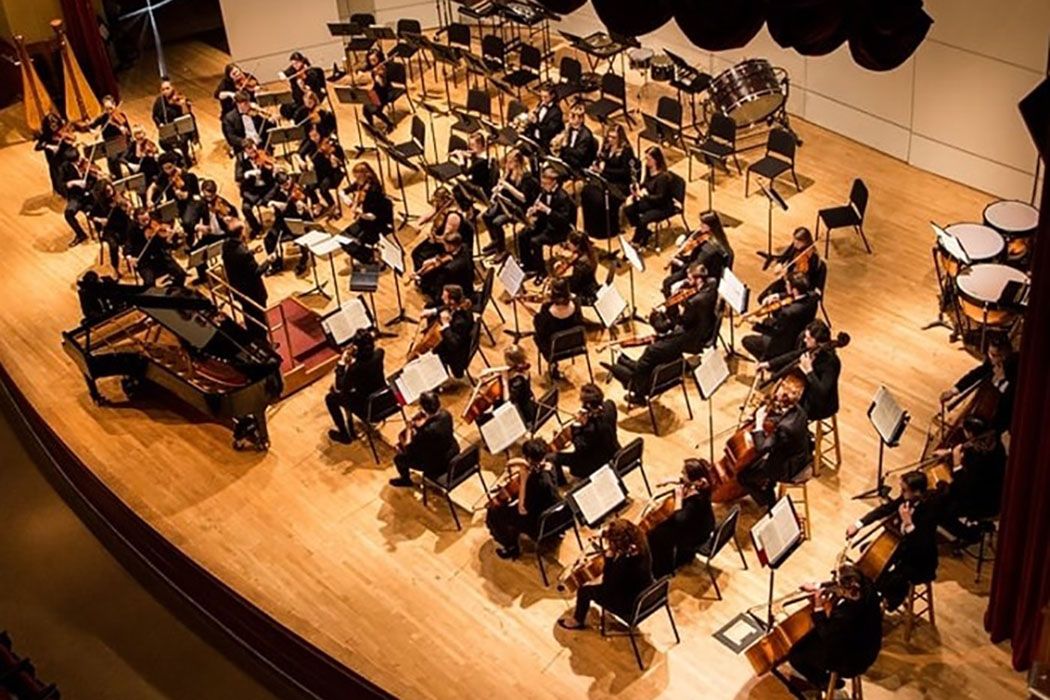The University of Tennessee Symphony Orchestra
Conductor: James Fellenbaum
“Unfinished Business”
Sunday, September 19, 2020 – 4:00 PM
James R. Cox Auditorium on the UT Campus
Free
When one mentions the notable prolific symphonists of the 19th Century, the name Emilie Luise Friderica Mayer probably does not come to mind. Yet Mayer (1812-1883)—an almost exact contemporary of Richard Wagner and Giuseppe Verdi—composed eight symphonies, a number of violin sonatas, 12 cello sonatas, 6 piano trios, 7 string quartets, 2 string quintets, a piano concerto, 15 concert overtures, and an opera, Die Fischerin, among a number of other piano works and lieder. Despite a career of composition, performance, and travel in European music circles, Mayer and her work fell into obscurity following her death, an obscurity that has only been corrected in the last 20 years or so. The reason for this is obvious—the gender bias that lay at the very heart of 19th Century society and the professional music world.

Mayer was born the third of five children to a well-off pharmacist Johann Mayer, receiving a music performance education as was common among young girls in her economic strata. At the age of 28, her father committed suicide, leaving the unmarried Mayer an inheritance which enabled her to begin composition studies with composer Carl Loewe, who was apparently quite enamored with her obvious talent. Later, she moved to Berlin to continue composition studies with other teachers: fugue and counterpoint with Adolph Bernhard Marx and instrumentation with Wilhelm Wieprecht. In 1850, Wieprecht presented a concert of her works at the Royal Theatre in Berlin.
It is difficult to put ourselves into the framework of lifestyles and societal taboos of the mid-19th Century Europe, but we can agree that Mayer’s situation was anything but normal. She lived alone as an unmarried woman and travelled throughout Europe for performances accompanied by her brothers. Clearly, her musical development depended on such freedom, not to mention her access to professional orchestras for exposure. While male music critics of the day may have categorized her work as “second rate,” her audiences thought differently. It was reported that Queen Elisabeth of Prussia was a huge admirer of Mayer’s works.
Although Mayer’s history and musical output fell into obscurity for over a 100 years following her death, that neglect has begun to be remedied. First in Germany, now throughout the musical world, her works are being discovered and transcribed for publishing, performance, and recording. In what will be the first American performance of the work, the University of Tennessee Symphony will be performing her Symphony no. 4 in B minor—and for a live UTSO audience for the first time since 2020.
UTSO music director and conductor, James Fellenbaum, provided a bit of background on the work and its current history.
“It’s a really neat work. Previously, it was only available as a piano reduction, but a German composer/arranger/conductor, Stefan Malzew, reconstructed the work and recorded it back in 2012. So, it hasn’t been around long and there’s been only the one recording of it. I was pleasantly surprised it hasn’t been done on this side of the Atlantic, so that’s been a nice thing.”
The UT Symphony will be returning to its usual concert hall, UT’s James R. Cox Auditorium, for the concert this Sunday, September 19, 2021, at 4:00 PM. As always, the concert is free.






